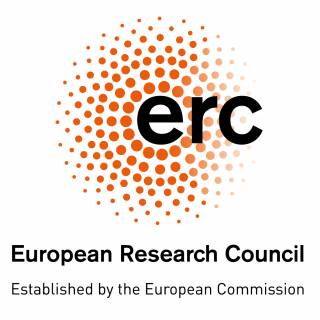 In this #EUelections2019 blog post, PhD student Mikko Saarinen discusses the severe lack of black and minority ethnic representation in the European Parliament and its consequences. Brexit is likely to reduce racial and ethnic diversity in the European Parliament.
In this #EUelections2019 blog post, PhD student Mikko Saarinen discusses the severe lack of black and minority ethnic representation in the European Parliament and its consequences. Brexit is likely to reduce racial and ethnic diversity in the European Parliament.
There is severe lack of racial and ethnic diversity in the European Parliament. There are currently only 17 MEPs, who identify as non-white, out of 751 in the EP. Had Brexit happened during the spring, this number would have decrease to 9, as 8 of non-white MEPs are from Britain.
If Brexit finally happens, alongside the British MEPs will also leave the non-white assistants of British MEPs and other staff members, who have done work to raise awareness of racism in the European Parliament. While there is only uncertainty regarding Brexit, the situation highlights that one member state has more diversity in political representation than the others do and that European Parliament does not represent all European citizens.
The unbalanced situation regarding lack of political representation of racial and ethnic minorities can be concretised by the following example: there are only three MEPs of African descent, whereas there would 22 MEPs if the EP represented Europe’s black population. These hypothetical 22 black MEPs do not include other ethnic and racial minorities, such as Roma people, whom there are approximately 6 million in the Europe and whom are represented by two MEPs. By comparison, Finland has a population of about 5,5 million and has 13 MEPs. It is telling of the continuous anti-Roma attitudes and discrimination in Europe, that only two persons politically represent the biggest ethnic minority in Europe.
This unbalanced situation has not gone unnoticed in the parliament, however. The leader of ECR group’s and member of British Conservative party Syed Kamall has given statements about the institutional racism in the European Parliament. Kamall is the first non-white and Muslim political group leader in the EP. The following quote from him summaries institutional racism and racial hierarchies in the EP: “If you want to see diversity in the European institutions, look at the faces of the cleaners leaving the building early in the morning and contrast that with the white MEPs and officials entering.”
Likewise, #BrusselsSoWhite campaign and activists have raised this issue in the social media by highlighting the everyday discrimination and the lack of representation of minorities in the EP.
To understand some of the problems of unbalanced ethnic and racial representation, we can look at the insights made in the tradition of critical race theory. One of the central thesis of critical race theory is interest convergence, which describes how white majority do not have in their interests and priorities to advance minorities’ rights and living conditions as these advances might disturb white privilege and identity. Interest convergence is often result of unintentional actions and it is a form of structural racism. It can be summarised as learned and habitual ignorance of racism and ethnic discrimination and sustained white privilege, which reproduces racial and ethnic inequality. It emphasizes how institutional and structural practices normalise discrimination and make it unnoticed, which is why it is important to realize how institutional practices affect individuals’ actions and thinking.
Interest convergence does not mean that individual white persons cannot actively make anti-racist initiatives. Rather it raises the issue that white people need to unlearn from white privilege and develop more equal and respectful relationship to ethnic and racial minorities. To unlearn from this, one should realize how in many cases key actors in institutions and institutional practices sustain the racial and ethnic status quo. For example, Karen Celis, Silvia Erzeel, Liza Mügge and Alyt Damstra have found evidence how gender and ethnic quotas can be used to sustain the political power of white men in political parties instead of the quotas’ intended goal to increase diversity in politics.
In the context of EU, it is telling that in 2017 European Network Against Racism (ENAR) wrote to European Commission’s president Jean-Claude Juncker and commissioner Günther Oettinger an open letter on how racial, ethnic and religious minority staff were omitted from the EC’s diversity and inclusion plan.
Likewise, there is threat that the European Parliament Anti-Racism and Diversity Intergroup (ARDI) may not continue its work in the EP or it does not have room to operate because of the lack of interest for anti-racist policymaking in the next parliament. ARDI’s coordinator Alfiaz Vaiya has been pessimistic about this development regarding Brexit: “After Brexit, in terms of fighting racism and discrimination, the EU is going to be worse off. … It’s losing a fundamental member state that, whether under Labour or Conservative governments, has advocated for anti-discrimination policy.” And after Brexit, the ECR group will lose its British Conservatives, who have raised the issue of institutional racism in the EP. It is doubtful that these discussions about diversity and anti-discrimination will continue in the ECR, as the other main party, the Polish party Law and Justice, does not have minorities in their interests.
Therefore, the whiteness of European Parliament and unbalanced ethnic and racial political representation of Europeans in the European Parliament reproduces situation, in which ethnic and racial minorities’ rights and living conditions are not prioritised as political issues. This can have negative effect on anti-discrimination policymaking and cause lack of sensitivity to racism and ethnic discrimination in other policy areas; after all, all policymaking affects minorities’ living conditions.
While European Union has done important legislative work on anti-discrimination policies in the past, there is still a need to do more and there is a risk that the current political climate may cause less prioritising on anti-discrimination policies.
After the European elections, we will see if there will be improvement or not on the political representation of minorities, and we can only guess what the new situation will mean for anti-discrimination policies and the everyday institutional racism in Brussels.
Mikko Saarinen is a PhD student in the EUGenDem project and studies institutional racism in the European Parliament.

